5. Starship Troopers (1997)
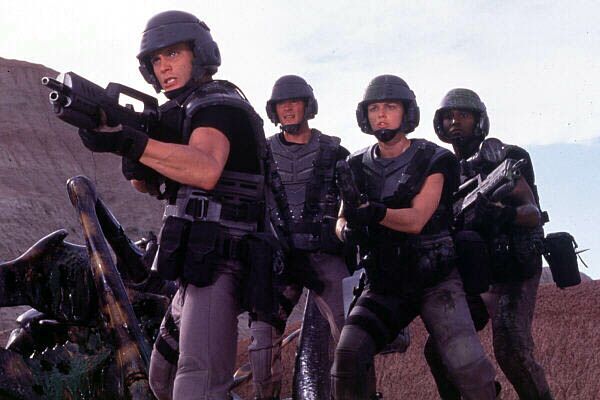
Paul Verhoeven is a really interesting filmmaker who does not get enough recognition. While his name is not very well known, if you mention “Basic instinct,” “RoboCop,” “Total Recall” or “Black Book,” most likely someone will know those films and tell you how great they are. The film on the list turned out to be “Starship Troopers,” but it could have been easily “Showgirls,” “Black Book” or another one, because Verhoeven creates a very unique vision and style in his films, and are very often overlooked.
In a future society, students are harangued to join the Army and become citizens. Johnny Rico is ready to follow his girlfriend, but will end up participating in a bloody war against the insects of the planet Klendathu after the death of his parents, because of a meteor thrown by these insects against his hometown.
The message of the film is so simple, so obvious and so sincere that it was inevitable that many people did not understood the film, rather misinterpreting and massacring it. That entire absurd and tacky tone that has the movie – the cliché characters, the absurd discourse of the news, the Marines revelries – is intentional, staged to parody and amaze the open minds with a great and delirious show.
But this is Verhoeven. As in “RoboCop,” where Verhoeven already introduced ironic TV sequences, here he introduces “informative” satirical and corrosive sequences in a militaristic society, where to have rights you have to win them at the risk of your life. These interludes gives us a very fast and lively pace to the film, but also informs the viewer of the reality in which they live and they are very funny. Also the editing in general is magnificent, from the long initial flashback, to the vigorous scenes of action, shot with great skill.
In short, “Starship Troopers” is not a film to be taken seriously, because even the film does not take itself seriously. It is made to enjoy the joke, the entertainment, the crazy proposal, the criticism of everything that passes, and Verhoeven’s vision of science fiction cinema of the last decades.
4. Last Action Hero (1993)
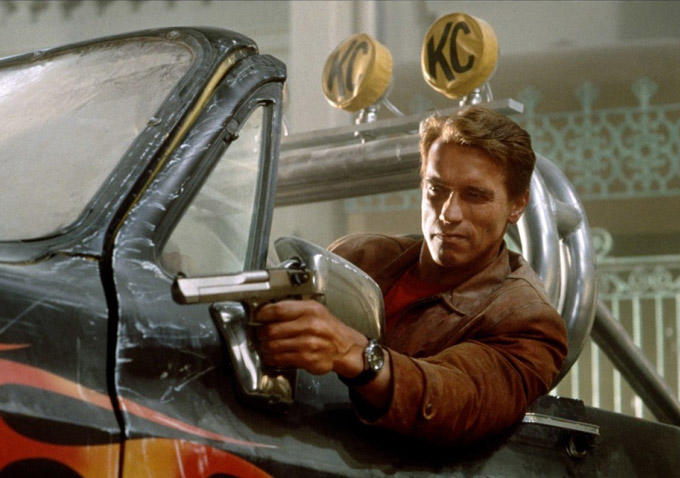
“Last Action Hero” is one of those films that we mistakenly think should not be taken seriously, since it is a parody. In part, this is true, but it is also true that after all the jokes of explosions, brutal phrases, deaths by ice cream cones and other bestialities, there is a sincere tribute from John McTiernan to cinema, and not only to action cinema (a genre of which McTiernan is a well-known expert).
Danny Madigan is a fanciful young child, a fervent admirer of Jack Slater, the greatest hero of action movies. When his last film is released, the old usher of the cinema gives him a ticket to see it in the first place. Thanks to that ticket, which turns out to have magical powers, Danny manages to enter the screen and live exciting adventures with Jack.
For some people, this is a very beloved film, because Danny reminds us of ourselves. A total devotee of a character on the big screen, always waiting for the next adventure that will have more violence, more explosions, more gunfire and more heavy metal (those AC/DC and Megadeth songs are great). More than a character, we are always waiting for the new thing to come out from a director or a music group.
That unconditional love to cinema, knowing already what you are going to find, which makes you leave your hard life, your mediocre house, your mediocre family, your mediocre school for an hour and a half. Watching this movie is something special, because it makes us see clearly why we like cinema so much.
In addition, not all actors know how to laugh at themselves, and in this aspect, Arnold does it wonderfully. The movie is actually a parody of all the action movies of tough guys, but it is also a great action movie in itself.
The movie is a parody of the action heroes; it has a lot of phrases to remember, a lot of funny moments, great comical situations and within its genre it’s good, but you have to understand it.
It’s an unusual film where Arnie always acts as if he were in an action movie, and the child tries to explain reality, which creates a lot of comical situations, like the killer who is always hiding in the wardrobe, the bad guys portrayed with all the possible topics, and the macho phrases such as “how are you going to snap your fingers after I’ve ripped your thumbs off?” All the topics of action movies are shown to make fun of them, and they get it.
3. Godzilla (2014)
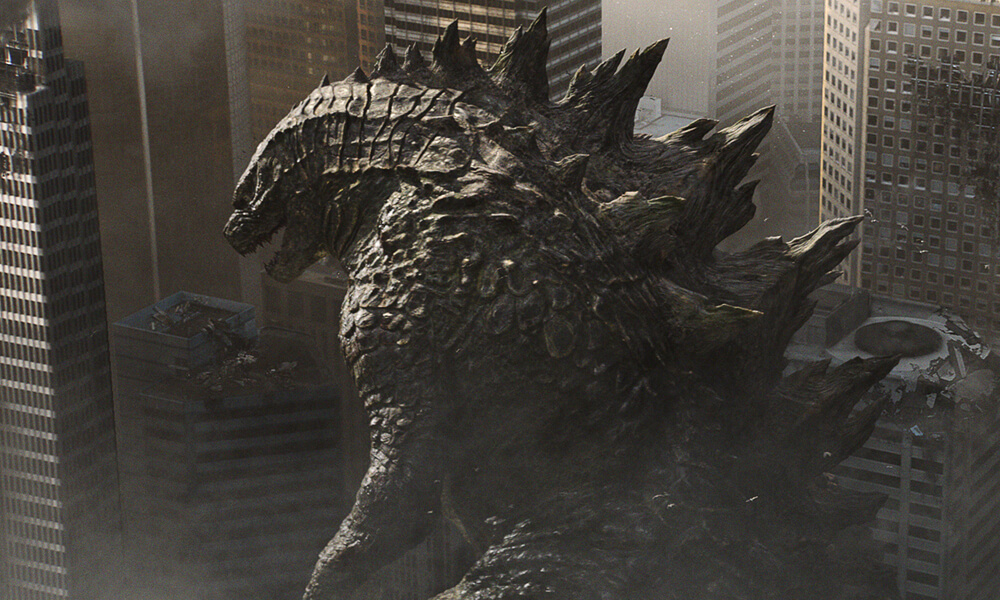
Gareth Edwards has managed to recover the essence of the most charismatic monster in the history of the big screen, and not only that, he has done so by being true to the origins of the creature, which is to be welcomed. Forgotten is that “dinosaur” of the late 90s that was not even capable of tearing down an entire building. You will enjoy contemplating this being, but especially because in the two hours of the film you will not find a bit of boredom, you’ll just enjoy some great and excellently achieved visual effects.
Many complain that Godzilla does not appear quite enough on screen. It appears enough. It is better to miss him than to get tired of his presence. It is better to wait nervously for his interruption than to stop being surprised by him because he’s on screen so much. The pacing of the film is very good, with a perfect introduction where everything is clear, although it is true that sometimes you can feel that the film cuts the action when something cool is about to occur. However, Edwards reserves that intensity that does not allow us to live 100 percent throughout the film until the end.
It is a film that is influenced by Spielberg in many ways (there are unparalleled “Jurassic Park” moments) and is also influenced from the Gojira monster in the original 1954 film. Remember that in Ishiro Honda’s classic, we did not see the creature destroying Tokyo until the end, until that moment the narration shows us only the havoc it has left behind. In the case of this last movie, the same thing happens; we only see the damage it causes and Edwards has no problem in showing the muto’s repeatedly revealing the king of the show little by little.
In general, this Godzilla film and this first entry to the monsterverse they are building alongside “Kong: Skull Island” is a solid and epic blockbuster that does justice to the king of the monsters.
2. Watchmen (2009)
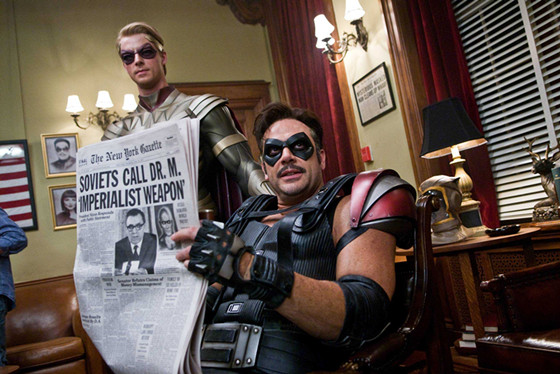
The maneuver was risky: adapt the most acclaimed graphic novel of all time, compress it for the big screen, recover a now obsolete historical context, and all of this under the watchful and suspicious sector (that of the comic books) too accustomed of suffering disappointments. This stumbling block has undoubtedly been overcome with “Watchmen,” a movie that will give you something to talk about and that will undoubtedly convince the purists.
Set during the Cold War, on the verge of a nuclear confrontation with the USSR, a group of former superheroes, inactive by a government order, meet again after the murder of one of them. This event triggers a series of events in which the heroes will have to face ethical conflicts, fears, old quarrels, and will be aware of a mysterious conspiracy that seeks to discredit them.
Framed in an atmosphere close to the most classic noir cinema, “Watchmen” plunges us into the decadence of a group of superheroes who are victims of the most human of weaknesses. A film brimming with intrigue and drama without leaving aside the most spectacular action, all supported by a brilliant plot and an exceptional script, and not without strong political criticism.
From the beginning of the film you can see how faithful Zack Snyder wanted to keep with the original work, adapting it almost frame by frame with a huge visual impact. “Watchmen” is, overall, a brilliant and underrated film.
1. The Tree of Life (2011)
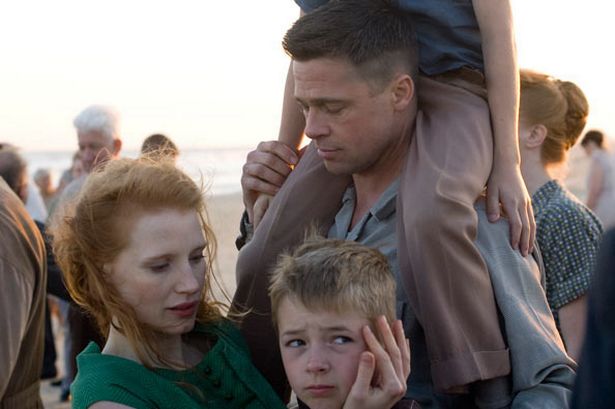
A lot of people who have seen this movie believe that this film sucks; literally, they feel that it is a mockery in which they have been bored to death. This is to say that whoever is reading several opinions of the film, trying to decide whether to see it, one thing is clear: “normal” people do not like this film.
Terrence Malick has never been a tasteful dish for everyone, and this is more than clear when you see and analyze his filmography. There are those who adore him and are fascinated by his narrative and visual style, and then there are those who get easily bored with him and think that his films are empty, elongated with pedantic and pretentious narrations. What is clear is that Terrence Malick has done more for film history with fewer films than many other film directors with more films. He has created a unique visual and narrative style, full of poetry and preciousness.
“The Tree of Life” is an authorial, artistic exercise with pretensions. It is not a film to pass time with or to be entertained; for that there are other Hollywood products. It is a work that seeks to catch the viewer who needs or who knows how to appreciate other points of view.
In this, Malick divides his feature film into two sections and alternates them in time, telling a nonlinear story that looks face to face with other more spiritual and less rigid exercises. Alternate a family story with an authoritarian father, a somewhat withdrawn but gentle mother and children who are experiencing life, with a reconstruction of the universe that is an orgasm for the senses.
What is certain is that it is a very personal piece of work, non-transferable and a sophisticated exercise that will divide opinions irremediably. Which group you join will depend exclusively on you.
“The Tree of Life” is, overall, a unique piece of cinema and a visual feast for your eyes. It is a necessary film that reconciles you with humanity, because it shows you the beauty and the nature about life. “The Tree of Life” is a beautifully long visual poem.
Author Bio: Pedro Morata is an aspiring filmmaker, but above all things, he is just a normal guy who is very passionate about film. He enjoys Asian films, especially cinema from Hong Kong. His favorite films are Drive, Chungking Express and Taxi Driver. You can follow him on twitter: @PeterPayne9.